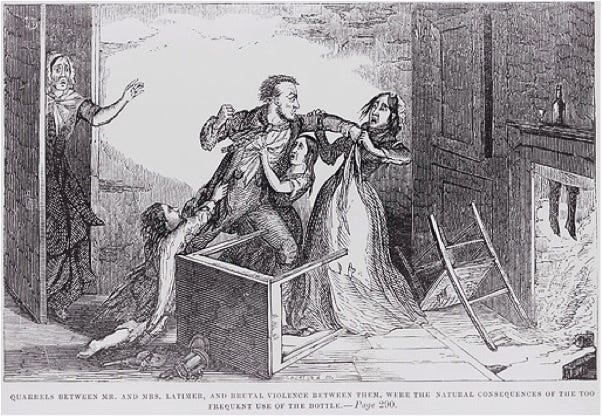Trumpists try to rewrite the American story, but plenty of smart folks stand in the way

Six years ago, in the thick of Trump I, Heidi Schreck’s Obie Award-winning and Pulitzer-nominated play, “What the Constitution Means to Me” opened on Broadway. The work dealt with immigration, sexual assault, domestic abuse, women’s rights and abortion.
Schreck’s viewpoint was clear: our nation’s founding guide was a flawed document, rooted in its time, that at first mainly enshrined the rights of propertied white men. As history and the play suggested, the Constitution regularly needed — and got — updating and broadening to include more Americans (thus, its many amendments over the decades).
Reviewed widely and well, “Constitution” was perfect for the time. The play suited a period when women and minorities worried about their rights becoming narrowed after many years of expansion. As The New York Times put it, Schreck’s work was a “paean for basic fairness: The American Constitution, admired as it is, fails to protect all of us from violence and discrimination.”
Smithsonian magazine in 2019 reported that Schreck’s play “talks about the marginalization of women and other demographic groups, about domestic violence and sexual abuse. She calls out the founders and later interpreters of the Constitution for their male-centric view of the world, in her groundbreaking analysis of what she sees as a living document that can evolve with our times.”
And now, with revivals of the play popping up in places as far-flung as Bethesda, Maryland, and New York City, Boston and Los Angeles, “Constitution” seems more timely than ever. We recently saw a production in our town, Silverthorne, Colorado, that was by turns inspiring, unsettling and discouraging.

The play was inspiring because one could see how far we’ve come, but unsettling because one also sees how recent the gains have been. And it was discouraging because we now seem to be turning the clock backward. Wife beating, for instance, was legal in many states until the 1870s and after that it was widely ignored by authorities or treated as a private family matter until the 1970s. And it wasn’t until 1994 that the Violence Against Women Act was passed, treating domestic assault as a crime. All astonishingly recent.
All, perhaps, fragile in light of the horrendous and persisting rates of what experts call “intimate partner violence.” IPV, the experts say, kills 1,300 women in the U.S. each year and injures 2 million.
And then there’s the matter of a woman’s right to choose. In the U.S., abortion was criminalized in the 1880s and not legalized until the 1970s, and it has been systematically been restricted in many jurisdictions since. In all, 41 states now have restrictions on choice, including a dozen states with complete bans. Perhaps not coincidentally, it also took more than a century for women to get the right to vote, enshrined in the 19th Amendment in 1920. And now, we see widespread efforts to suppress voting by everyone, especially by people of color.
That troubled history – that long and clawing struggle to broaden the rights of so many Americans – is essential knowledge for all of us. Not only does it put our freedoms into perspective, but it casts into bold relief today’s efforts to dismantle or restrict such rights. And that throttling effort is being led, it must be said, by a relatively small group of privileged white men who are riding on the resentments of a larger group of such men (and some women) who feel threatened by the social changes of recent decades.
“The way certain developments in the economy, in politics and in the social world have gone in the last 40 years has led to working-class white men … feeling like their authority has been undermined,” sociologist Raka Ray, dean of social sciences at UC Berkeley, said in a 2022 university publication. “When you get strong feelings of anger and despair in a group or a population, that can turn very quickly into giving encouragement to the politics of resentment or the politics of revenge.”
A broad range of Berkeley scholars quoted in the piece, “Loss, fear and rage: Are white men rebelling against democracy?,” contended that millions of American men — most of them white, many of them working-class — have seen recent years as “a time of unravelling.” Their industries have been dying, their wages stagnating and their political power and cultural status diminished. Moreover, the scholars suggested, “core ideas about manhood and masculinity” have been in flux.
These disenfranchised folks, of course, constitute much of the MAGA base. Donald J. Trump didn’t invent them, but he has become their avatar. Shrewd marketer that he is, Trump has cast himself brilliantly as the voice of their anger and resentment, wrapping his act in the flag even as he so ignores the history – flawed and otherwise – that Old Glory represents.
Indeed, ignoring, denying or simply forgetting the flaws in our history of the kind the play so painfully depicts is a key part of the Trump project. He and right-wing government officials around the country seem determined to erase unflattering information about the American past, perhaps because they owe their successes to the ignorance of their supporters and want to perpetuate it at every turn.
A few years ago, when I taught at the University of Nebraska-Lincoln, state leaders shut down a university-wide scholarly effort to investigate the treatment of minorities historically by the university and the state, for instance. They even drove out the chancellor, a religious Republican and an honest and fair scholar, who had pressed for the effort.
One enterprise slipped through the ban, however, because it was commissioned by The Omaha World-Herald and supported by the College of Journalism and Mass Communications. The results were eye-opening for the class’s 21 students, as they found widespread mistreatment and poor newspaper coverage of groups ranging from Greek immigrants and Native Americans to Blacks over decades.
It’s questionable whether such an academic undertaking would be tolerated nowadays, as UNL – much like many schools across the country – is under pressure to purge efforts at diversity, equity and inclusion, critical race theory and “wokeism.” As The New York Times reported, Trump and his top aides are “exerting control of huge sums of federal research money to shift the ideological tilt of the higher education system, which they see as hostile to conservatives and intent on perpetuating liberalism.” That drive has extended from the Ivies, including Harvard and Columbia, to state universities such as the University of Virginia.

This Orwellian attack on education – reminiscent of the Soviet and later Russian rewriting of history – at times has been absurd. The most recent nonsensical example is the Interior Department’s plans to remove or cover up all “inappropriate content” at national parks and sites by mid-September, as well as the request for park visitors to report any “negative” information about past or living Americans, as reported by The Times. This mirrors an executive order Trump signed in March entitled “Restoring Truth and Sanity to American History” that directed the removal of “improper, divisive or anti-American ideology” from the Smithsonian Institution museums.
Trump’s propagandistic move drew heat from plenty of academics. The American Historical Association, joined by a bevy of other organizations, issued a statement that said his order “egregiously misrepresents the work of the Smithsonian Institution.” It held that “The stories that have shaped our past include not only elements that make us proud but also aspects that make us acutely aware of tragedies in our nation’s history. No person, no nation, is perfect, and we should all—as individuals and as nations—learn from our imperfections.”
“Patriotic history celebrates our nation’s many great achievements,” the AHA said. “It also helps us grapple with the less grand and more painful parts of our history. Both are part of a shared past that is fundamentally America. We learn from the past to inform how we can best shape our future.”
For his part, the president unleashed a review of whether monuments, memorials and other Interior Department information and content “perpetuate a false reconstruction of American history, inappropriately minimize the value of certain historical events or figures, or include any other improper partisan ideology.”
Of course, the “false reconstruction” that Trump and his partisans claim is really the view of historians far more versed in the facts – uncomfortable as they may be — than the president and his toadies ever could be. Recall that Trump was a middling transfer student at the University of Pennsylvania whom a former prof called “the dumbest goddamn student I ever had!”
The efforts by the right to rewrite American history will likely go little further than various institutions than Trumpists can influence – regrettably perhaps including the Smithsonian and our national parks. They may rename military bases for Confederates such as Robert E. Lee. They may even get statues of rebel heroes restored in some places.
But too many historians have written too much over too many years for Trump’s anti-historical crusade to have an enduring effect. Indeed, it doesn’t take too much imagination to see how historians will cast Trump over time. A 2024 survey of historians, the “Presidential Greatness Project,” put Trump dead last among all presidents after his first term. How might a post-2028 survey rank him?
Happily, we will always have the talented likes of Heidi Schreck to make sure our past isn’t forgotten, especially when a troublesome present makes it more important than ever to keep true facts alive, as “living” as the Constitution.







